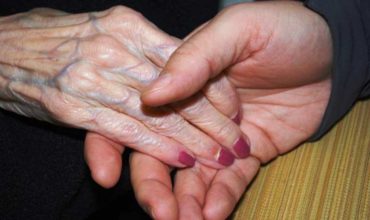As people age, they suffer physical, emotional, and social setbacks. These setbacks prevent them from functioning independently. Accepting care may sometimes seem threatening to your aging loved ones and become more challenging for you to help them.
In order to deal with the resistance of care, you need to understand the reason for the problem. In addition to understanding, you need to develop strategies to foster cooperation and encourage independence when caring for older adults.
The Loss of Independence Experienced By Older Adults
With increasing age, people usually experience the loss of independence in three different ways.
Physical and Mental Loss
Physical and mental losses occur due to the declining capacity of body and mind to respond quickly. This loss is caused by performing tasks that require some degree of energy, such as walking, hearing, seeing, climbing the stairs and remembering day to day tasks. These usually have a significant impact on a person’s overall life.
Social Loss
A person experiencing the loss of social independence faces difficulty in meeting people or visiting new places. As a result, they begin to lose the sense of belonging and association.
Emotional Loss
The loss of physical, mental, and social independence may lead to the loss of emotional independence. Emotional loss develops a sense of frustration, sadness, and the loss of control over one’s life.
What Causes Resistance to Care
Older adults usually show resistance to care when dealing with physical loss, cognitive loss and the resulting loss of independence. They may think that accepting care might alter their routine or relinquish their privacy. They might simply be frightened of certain changes that they may not feel ready for.
In some cases, your loved one may believe that accepting help is a sign of weakness and show reluctance to accepting help.
How to Promote Independence in Older Adults
You can help your loved ones become more independent while caring for them. Begin by helping them boost their self-image. For example, help them realize their abilities and performance. Set higher expectations from them and encourage them to use their capacities to live an independent life.
Create a Sense of Achievement
Allow them to help themselves with small daily chores. This can create a sense of achievement which can develop a sense of control in their lives.
Determine the Nature of Independence
Consider giving them tasks that are possible for them to do. For example, if your loved one is disabled, offer them tasks such as writing letters or making phone calls. Similarly, if the person is cognitively impaired, you can ask them to help you with washing, cleaning, or tidying up.
Encourage Communication
Build a better relationship with a loved one by appreciating them as individuals. Let them know that their contribution to home and family is helpful and worthwhile.
This article is brought to you by HealthConnect, a leader in Medical Alert systems offering three solutions to meet every need. Please contact us via email at info@HealthConnectInc.com, Twitter @HealthConnect00, call 800.262.3045 or visit our website at www.HealthConnectInc.com






